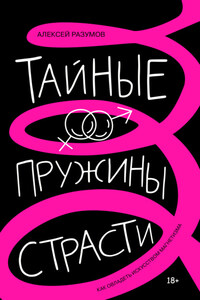Introduction: Who Stole Your Freedom?
Chapter 1: Why You Fear Your Desires
How We Were Taught to Suppress Ourselves from Childhood
From the very beginning of life, you were told who you should be: quiet, obedient, "good." These words sounded like care, but in reality, they laid the foundation for suppressing your natural impulses. "Don’t do that, it’s shameful," "You must be exemplary" – these are not just phrases but the first bricks in the wall separating you from your own desires.
A child’s brain works like a sponge: it absorbs not only words but also the emotional context in which they are spoken. If you did something adults considered wrong, you were punished. Not necessarily physically – a stern look or a judgmental remark was enough to instill guilt. The hippocampus recorded these moments as "dangerous," and the amygdala associated them with the emotion of fear. Every time you tried to express yourself, a red light flashed in your mind: "Stop, this is forbidden, this is bad."
School only amplified this process. You were expected to sit quietly, raise your hand, speak only when allowed. You were evaluated for your behavior, not your personality. Too active? "Hyperactive." Too emotional? "Problematic." These labels taught you that being yourself was wrong.
Society’s treatment of the body was particularly cruel. From an early age, you were taught that certain parts of your body were "indecent." You shouldn’t touch yourself, you shouldn’t ask "ugly" questions. Girls were taught to be "modest," boys to be "strong." Desires were suppressed even before you could understand what they were.
The fear of judgment became your constant companion. You learned to restrain yourself, hide your emotions, suppress your desires because you feared rejection. This became your second nature. You stopped asking questions because the answers would still be "wrong."
But it’s important to understand: this is not your fault. It’s a system designed to raise compliant people. People who don’t ask too many questions. People who are afraid to stand out. Your individuality was crushed under the weight of social expectations until you began to think of it as normal. But suppression is not normal. It’s a trap you can escape if you recognize its existence.
Fear and Shame as Social Tools
Fear and shame are subtle tools that society has learned to use with remarkable efficiency. These emotions are so deeply embedded in your psyche that you don’t even notice how they control you. You think these are your own feelings, that they are natural. But in reality, they were skillfully instilled in you to make you predictable, obedient, convenient.
Fear creates the illusion that your desire is a threat. As soon as you begin to want something, your brain automatically sounds an alarm. The amygdala, responsible for instinctive reactions, perceives any deviation from the norm as danger. But this "danger" is just an invention. Society has reprogrammed your brain to fear stepping out of bounds. You are afraid not because it’s scary, but because you were taught to feel this way.
Shame goes even deeper. It’s not just a momentary emotion but an embedded mechanism of self-censorship. You don’t need external control if you’re already afraid that something is wrong with you. Shame creates a constant internal dialogue: "I’m not good enough," "My desire is shameful." It makes you doubt yourself, abandon your thoughts and aspirations before they even take shape.
These emotions take root through social practices. In childhood, shame is instilled with seemingly harmless phrases: "What will people think?" "You can’t do that, it’s inappropriate." In school, fear becomes discipline: grades, punishments, labels. Culture and religion elevate this to the level of absolute control. Desires are declared sinful, the body a source of filth, and freedom a chaos to be avoided.












